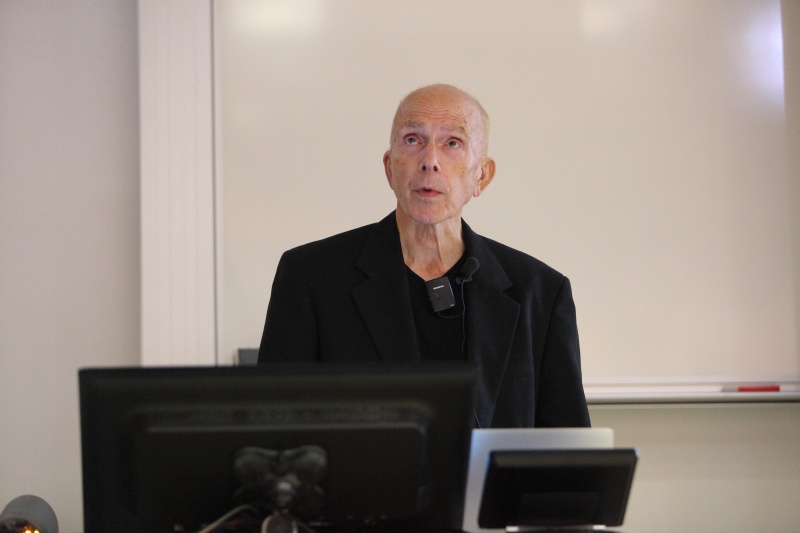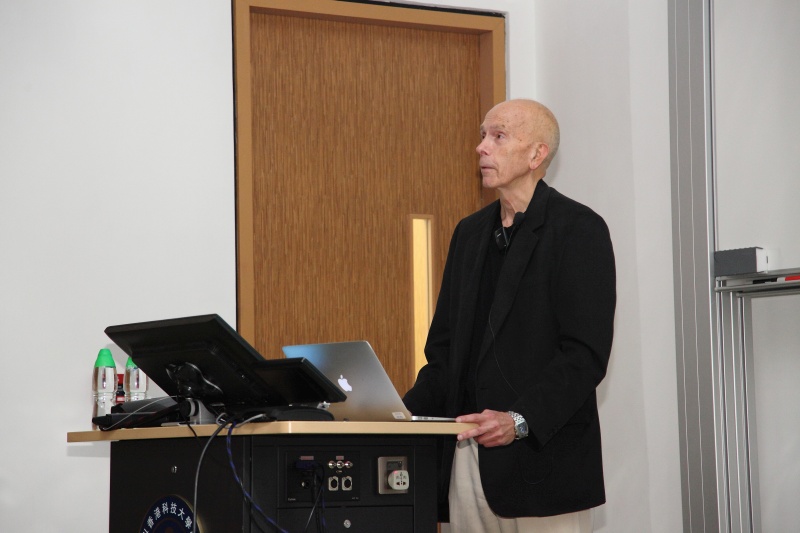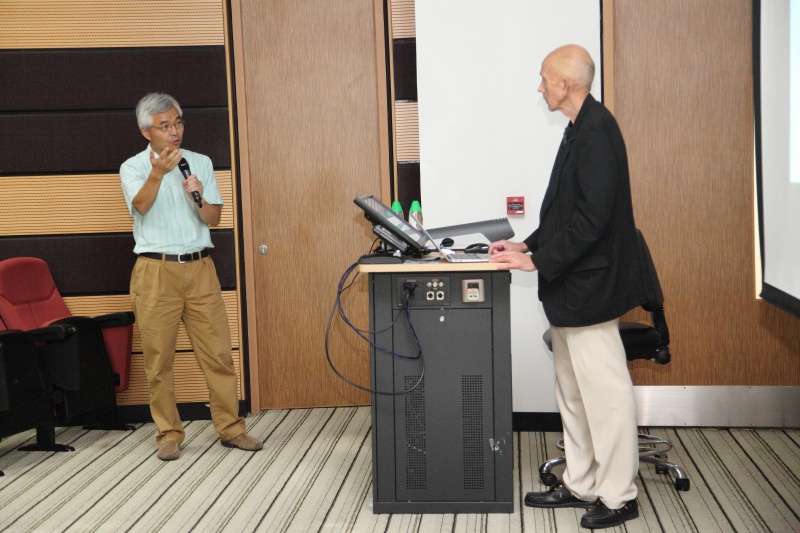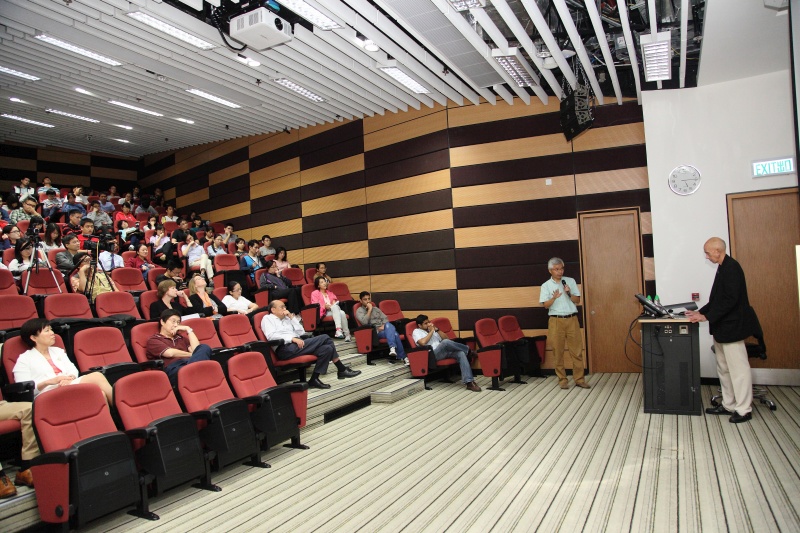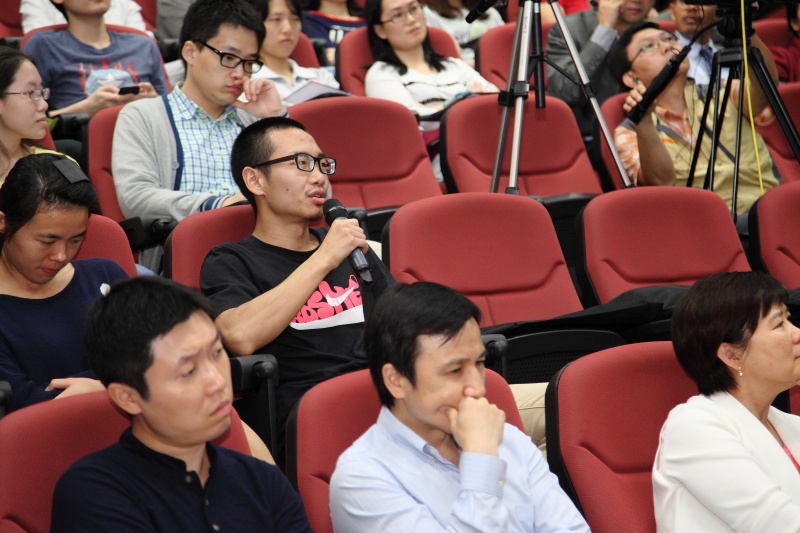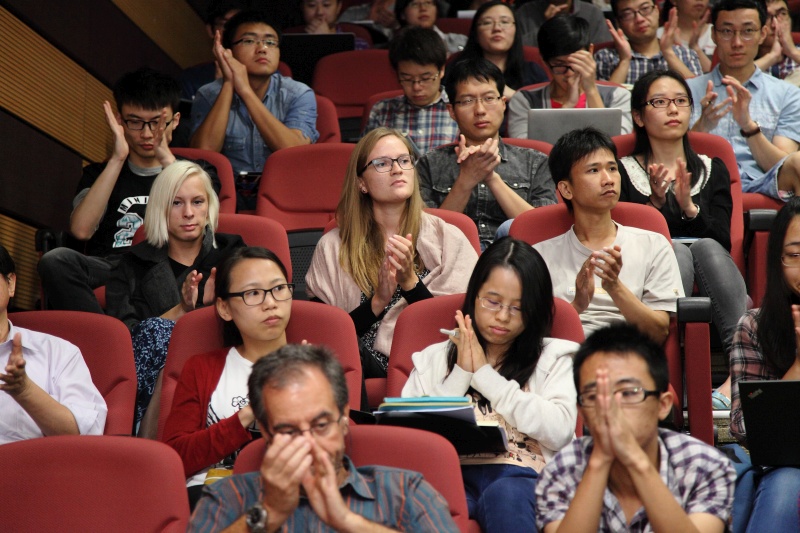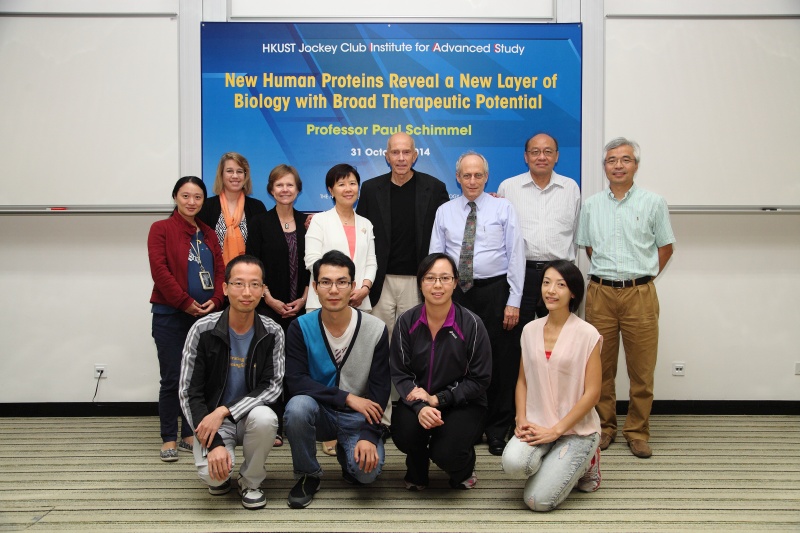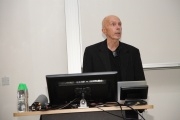New Human Proteins Reveal a New Layer of Biology with Broad Therapeutic Potential
Abstract
Spearheaded by a consortium led by the IAS HKUST-Scripps R&D Laboratory and the Division of Life Science at HKUST, a massive RNA deep sequencing effort revealed a large array of previously unknown alternatively spliced human enzymes known as aminoacyl tRNA synthetases (AARSs). Through alternative splicing, the entire ensemble of 37 cytoplasmic and mitochondrial AARSs undergoes metamorphosis into over 300 new sequences and structures. Strikingly, most of these new proteins ablate the respective catalytic sites, and are inactive in protein synthesis. Instead, the new proteins are active in cellular pathways outside of protein synthesis, and are expressed differentially in specific cell types and stages of organismal development. Applications for therapeutic intervention directed at cancers, inflammatory, hematological, neurological, and other diseases appear possible, and have been demonstrated in animals. Human clinical trials have recently been initiated. The full ramifications of the new biology engendered by these proteins will unfold in many laboratories over many years, and will continue to be led by efforts at HKUST.
About the speaker
Prof. Paul Schimmel received his PhD in Biophysical Chemistry from Massachusetts Institute of Technology in 1966. Before he joined the Scripps Research Institute in 1997, he was a Professor of Biochemistry and Biophysics in the Department of Biology at MIT. His major research activities have concentrated on the decoding of genetic information, with emphasis on the rules of the universal genetic code which are established through aminoacylation reactions catalyzed by a group of enzymes known as aminoacyl tRNA synthetases. The latter are believed by many to be among the first enzymes to arise on this planet in the early stages of the evolution of life.
Having a longstanding interest in the applications of basic biomedical research to human health, Prof. Schimmel is a Member of the US Academy of Sciences, the American Academy of Arts and Sciences, the American Philosophical Society and the US Institute of Medicine. He holds several patents and is a cofounder or founding director of twelve biotechnology companies, of which six are publicly traded. These companies are developing new therapies for human diseases and disorders, one of which, Pangu, is a joint venture with HKUST.

